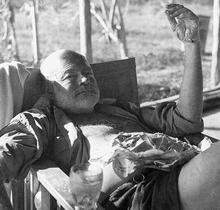The people of Britain are just like people everywhere else. They are proud, hard-working people, who long for a brighter future. It is also a country with a large working class. Working class people are the people who tend to actually do things, like screw screws and plumb plumbing. Like everyone, they often feel their circumstances should be better. However, their situation is especially poignant, because in countries with high inequality, like the UK and the USA, a working class person can simply drive down the street to see how much the bankers get paid for doing things like screwing the working class.
People who are unhappy and angry often don't attend to the long-term consequences of their actions. Crimes of passion by definition lack the premeditated thinking-it-through that tends to keep people out of trouble. Still, crimes and emotionally-driven actions are often the outcome of a history of emotional dissatisfaction. People don't just get angry one day and stab their partner. They get angry, and then they get angry again, and then they stomp their feet for a while, and then one day they get really angry and they happen to be cutting onions.
Working class people in places with high inequality have been angry for a long time, perhaps since the dawn of work. The referendum on Brexit in the UK just handed the working class a knife and placed a blow-up-doll of the EU nearby.
A lot of people may be inclined to see the Leave vote as irrational. It's quite a bit more complicated than that. Cameron sat at the EU negotiating table and he aimed to make a certain kind of deal. That deal was unsatisfying for the UK, despite Cameron's claims that it should have been otherwise. So he asked the people for a vote. This gave the voting population the chance to negotiate with the EU on Cameron's behalf. Voting either way would send a very important signal that everyone in Europe would hear.
A strong vote to Remain says to the EU decision makers, plainly, "You shouldn't take the British government's whining about the growing EU government seriously, because the British seem happy enough with the way things are." A vote to Leave sends an equally plain message: "We Brits are walking away from this negotiation, consequences be damned." It is a shame that the best political minds of Europe couldn't have turned this either-or checkbox in the voting booth into a slider.
Emotions were high on both sides, in part because the experts (people who are trained to understand the factors involved in good decision making) were still on life-support from the last time their predictions blew up in their face. The economists haven't recovered from the last financial crisis. The recent publicity of the crisis of confidence in science hasn't helped much either. Science has always been the highest forum for skepticism. The whole industry is riddled like blue cheese with the mold of skepticism, and perhaps it should remain so. A crisis of confidence is practically the definition of a good scientist. If Einstein didn't question Newton, you don't get e equals mc squared. If Charles Lyell didn't question the catastrophic theories of geology, you don't get plate tectonics or probably Darwinian evolution. But still. A lot of people in the world have had their fill of people knowing stuff. It is much easier to say something as intelligent as, in the words of Michael Gove, "People in this country have had enough of experts." Then you can believe whatever you want.
Emotionally charged claims were being served up by both sides.
Many have characterized the emotional divide as a split between the Angry and the Scared. The Angry wanted to throw the negotiating table at the EU, and they made claims that often ended with an implicit WTF. The Scared were worried about the consequences of leaving and provided evidence of a similar but different style. These often showed lines going up and down and through the top or bottom of charts. Everyone knows that lines should never rapidly approach the edge of a chart. You can make jabs at people here if you want--like "If people can't read a chart, they shouldn't be allowed to vote," and "Your chart is telling me what happens to the average person, but if the guy down the street gets richer, then the average income goes up while I get to go @*£!$ myself. So you can take your chart and shove it up your *@$£!" I don't recommend these lines of argument. Frankly, they are not persuasive. Very few people are stupid in any meaningful sense and the British aren’t either.
Hindsight has the benefit of allowing us to tell stories that predict the outcome of Brexit in advance. But frankly, no one knew the outcome. Especially not David Cameron who gave the people the vote. Nor the bookies who bet on Remain. Nor does anyone know the future, except to say that it is uncertain. In the present case, the people have chosen more uncertain over less uncertainty. They have chosen to abandon the known to explore beyond the edge of the map. There be dragons, some say. But such exploration is often required for growth.
Of course, sometimes you just get eaten.
In a future post I hope to jot down what I think are some of the historical mythologies driving the current emotional landscape.
Follow me on twitter, if you like.


